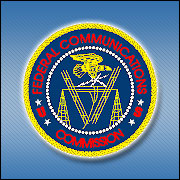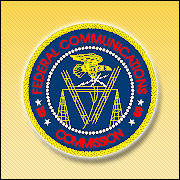
Comcast’s federal circuit court victory over the Federal Communications Commission (FCC) this week appears to have thrown a wide range of federal-level Internet plans into question. Only three weeks ago, the FCC announced its National Broadband Plan, with ambitious initiatives aimed at making high-speed Internet access available to all Americans, including those living in rural areas or managing on low incomes. However, the FCC may not have a say over much of what happens on the big Internet pipelines built by commercial ventures.
The Comcast v. FCC decision presents “cause for caution,” Claire Simmers, chair of management and international business at St. Joseph’s University, told the E-Commerce Times. “We’re in uncharted territory,” she stressed.
Pipeline, Beginning to End
The court, which ruled that the FCC had not adequately shown that it has authority to regulate the mammoth, heterogeneous network on which the Internet operates, effectively gave that control over to the Internet service providers themselves. Increasingly, those providers are the same cable and telecommunications companies that also produce and distribute video and music content, sometimes through corporate relationships such as Comcast’s majority stake in NBC. That puts companies like Comcast “in charge of the pipeline, from beginning to end,” argued Simmers, which is almost never a good competitive environment.
Who, then, will advocate for the consumers who must both buy high-speed Internet service and also live with whatever content comes to them through that service? “I would hope that the feds would do it,” declared Simmers.
Whether or not the FCC itself will re-assert its authority, either by another appeal of the Comcast ruling or through a process known as “reclassification,” in which it would change its own organizational charge, remains to be seen. The commission’s own general counsel, Austin Schlick, stated in a blog post Wednesday that “[w]e are assessing the implications of yesterday’s decision,” as it pertains to the plan.
Rule of Public Outcry
Another option would be for Congress to enact legislation that either gives the FCC more authority or outright regulates Internet service providers and how they can control the content they provide through the delivery channels they control. The Senate Commerce Committee, through which such draft legislation would likely pass, did not respond to requests for comment by press time.
Even without legislation, though, the role of “public outcry” has tended to keep service providers such as Comcast in check, Andrew Klippen, vice president of content aggregation software maker Boxee, told the E-Commerce Times. “We hope that the people who control the pipes continue to respect the power that their users give them,” he said.
In fact, “the marketplace is doing a pretty good job of regulating net neutrality issues,” Klippen opined. Recent controversies regarding “traffic shaping” — the practice of slowing certain kinds of content as they pass through a provider’s network in favor of other content — have encountered great consumer opposition, which has forced providers to re-assess their practices, he argued. Thus, although Comcast could theoretically pass through NBC shows faster than other video, it likely wouldn’t do so because consumer outrage would stop it.
NCAA Tourney Test
Simmers’ family got a chance to see a variety of video delivery delivery channels in action recently while watching the NCAA basketball tournament. They had one TV using free, public airwaves to receive network transmissions to a digital box. Another was running programming through a Comcast-connected cable box. Yet a third screen was streaming video directly from the Internet, through broadband Internet service also provided by Comcast.
Interestingly, noted Simmers, the fastest transmission was to the TV connected to free network programming. The Internet-streamed video was second. In last place was the Comcast cable programming.
This anecdotal observation supports what Simmers asserts might happen anyway. “Sometimes,” she said, “if a corporation gets involved in too many things, it cannot focus and be in control of everything.” That is, although many consumer advocates have attributed nefarious intent to companies such as Comcast, asserting that they will intentionally slow down competitors’ streaming media content in favor of their own, they may not even have their operational act together enough to achieve the competitive advantage they’ve fought so hard to have.
“That might be the saving grace for the consumer,” Simmers concluded.

























































Social Media
See all Social Media